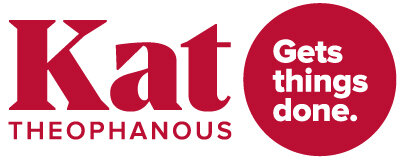
Hi, I’m Kat Theophanous - the Labor Member of Parliament for Northcote in the Victorian Legislative Assembly.


Hi, I’m Kat Theophanous - the Labor Member of Parliament for Northcote in the Victorian Legislative Assembly.

““Our local traders are in every way a part of the vibrancy of the inner north, creating that sense of shared experience and identity we are all so proud of. As we head into a new phase of this pandemic with increased vaccinations, I’ll continue to work to support our local businesses, local jobs and local economy.””
At the heart of our economic recovery must be jobs creation.
Our Jobs Plan will create 400,000 new jobs by 2025 and I’m making sure the inner north benefits from these opportunities.
That includes targeted support for our local traders, our creative industries and our manufacturing sectors – as well as more TAFE and training places to give Victorians the skills they need to get into work.
This includes the Working for Victoria initiative, which has now funded more than 12,000 jobs across Victoria.
If you are looking for work, go to https://jobs.vic.gov.au/ to access the online jobs platform and resources.
In the electorate of Northcote, the Working for Victoria initiative has created 175 full-time-equivalent (FTE) jobs by investing in local community service organisations such as Free to Feed, Bridge Darebin, Neami National, the Melbourne Farmers Market and Your Community Health.
The Working for Victoria has also funded 110 roles in the Darebin Council.
Further, the Working for Victoria initiative has invested in Aboriginal Community Controlled Organisations including the Victorian Aboriginal Legal Service, the Victorian Aboriginal Child Care Agency (VACCA) and the Victorian Aboriginal Community Services Association Ltd (VACSAL). This investment has been supporting local service organisations to meet the surging demand for their valuable services to the community during this time.
The roles funded in the electorate of Northcote cover diverse fields including hospitality training, family violence support workers, legal assistance, and community engagement and support workers.
In addition, several Jobs Victoria partners support jobseekers in the Metro North region which includes the Northcote electorate. These partners include Australian Multicultural Community Services Inc (AMCS), the Brotherhood of St Laurence, and Jesuit Social Services.
The Victorian Budget 2020-2021 invested $619.4 million to enhance Jobs Victoria and deliver a new approach to employment support that is better suited to the recovery phase of the pandemic. Of this, $266.5 million will enable Jobs Victoria to deliver more face-to-face advice and support to jobseekers who need extra help.
Jobseekers in Northcote and across Victoria will soon be able to access Jobs Victoria advocates. Advocates will help people to navigate employment and training services via proactive outreach in communities. They will connect with people in libraries, community centres, public housing foyers, shopping centres, and other community services to ensure that everyone is aware of the employment support available.
Other services to support jobseekers will be rolled out across the state in the first half of 2021. A key initiative is the network of Jobs Victoria Employment Services, who will employ expert Jobs Victoria Mentors to provide flexible and tailored assistance to eligible jobseekers. Mentors will work with jobseekers to develop their skills and get them job ready. They will also engage with local employers and connect them to high quality jobseekers that meet their business needs.
Careers counsellors will help people understand their own skills and interests and how these relate to local career options while the helpline will support jobseekers by providing advice and connecting them to local services, such as TAFEs, other local community services, Advocates or other Jobs Victoria services that can support them to be work ready and gain employment.
Of the $619.4 million to enhance Jobs Victoria, $250 million of wage subsidies will be provided to employers through the Jobs Victoria Fund, assisting at least 10,000 unemployed Victorians into steady and secure jobs. The Fund will help employers to grow their business and address skill shortages by creating opportunities for jobseekers to train and develop skills while in paid employment. At least $150 million of these subsidies will go towards employing women - and $50 million of that for women over the age of 45, recognising the additional barriers they face, both before and during the pandemic.